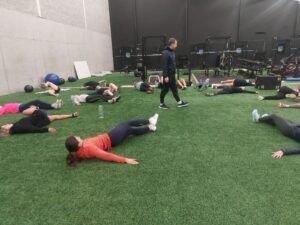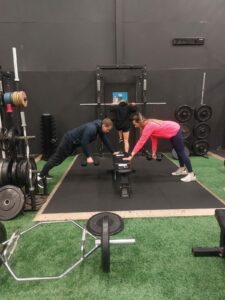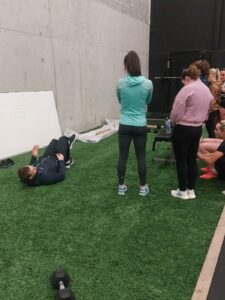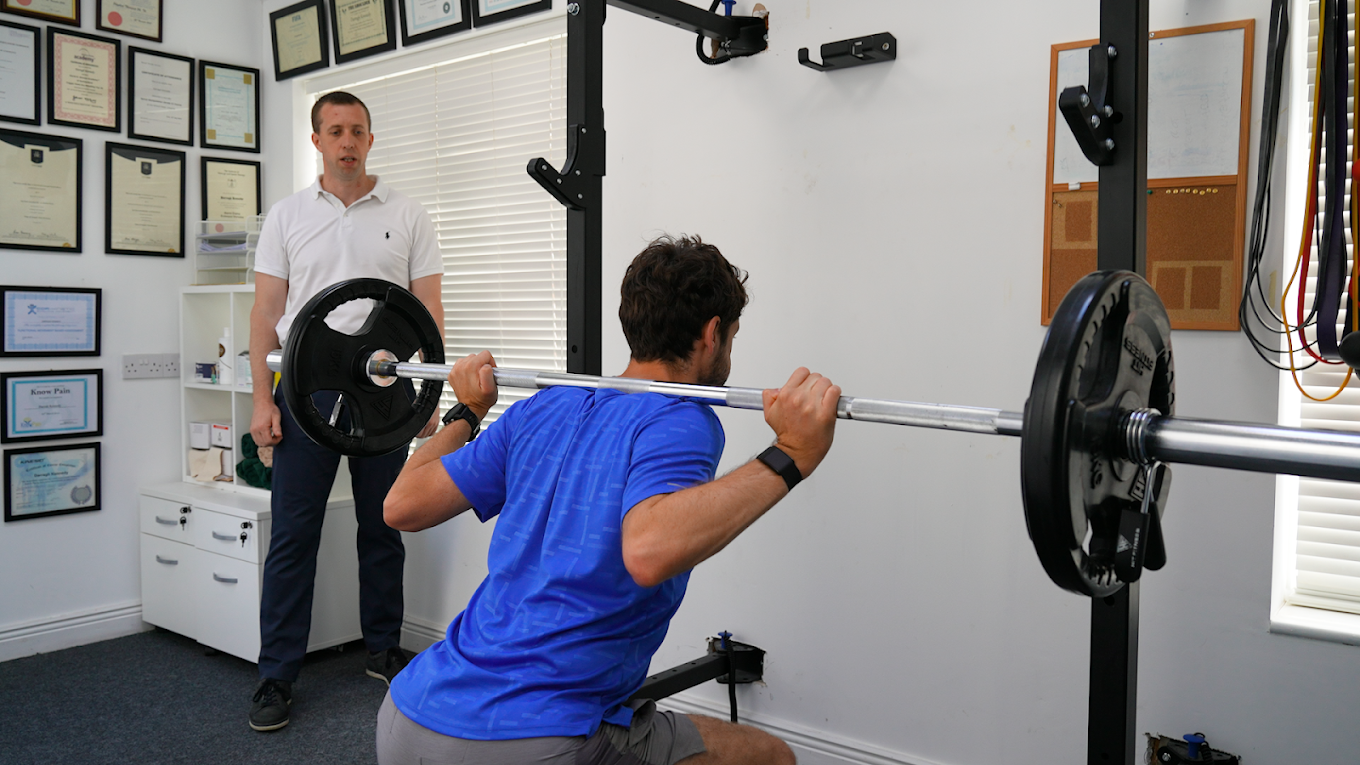Introduction
Below, Darragh Kennedy provides us with an insight into his background in sport, having transitioned from the manufacturing and services industry to completing degrees in both physical therapy and S&C.
Darragh is now a student on our MSc in Sports Injuries & Return to Performance Management.
S&C Coaching
Currently working as a physical therapist in his private practice, Darragh also combines this with his role as S&C coach with the Limerick Senior Camogie team.

“With the Camogie team there are multiple aspects to it – Designing and taking the gym sessions, which is where I would get most my contact with the players. Load monitoring is also a significant part of it, and managing players who have knocks or niggles through preseason. We are also trying to get good use out of our GPS, so we are now reviewing what we are doing in training.
We have done some athlete profiling, and trying then to fit in re-testing during the coming months is something we are looking at right now. I would be in contact with the head coach on a daily basis as well, so we can monitor load and plan sessions accordingly.”
Integrating S&C in Physical Therapy
From a physical therapy perspective, Darragh feels a background in S&C has enhanced his practice.
“It has helped me immensely, particularly in the area of return to play for injured athletes. It’s great to collaborate with a team’s S&C coach in the final phases of rehabilitation. The conversations are easier as I have an insight into what needs to be done, and we can efficiently work on RTP plans, along with the players input, to load them adequately and minimise their time out.”
Integrating principles from S&C in this role has also been beneficial, along with utilising technology to support decision making.
“I’m a big believer in being objective and using data to drive decision making. While the personal input and feelings of the player are important, I think we have a duty to them to take the emotion out of some of the decisions we make, and use objective information to help in our shared decision making. Also, players are so well informed these days on how to manage their bodies, they crave knowledge and data, and as to why you would choose your intervention with them.
I am a huge fan of the technology that is used in S&C/Sports Rehab. I have invested heavily in the last few years to acquire them, and am looking to really improve my offerings to players or teams by integrating these technologies.”
Learnings from MSc
Darragh outlines how the MSc with Setanta has helped him in his career.
“I had been on the lookout for a programme that combined physio and S&C principles for while, and when I heard about the Setanta one I was very interested.

The biggest benefit I have found is applying the learnings to real-life scenarios. For example, when I was carrying out my final assignments, I was using players that were injured at the time. It meant I then had to research certain injuries deeper than I would have before, come up with a treatment plan and then assess the improvements made. This helped me develop a deeper understanding of the theoretical and practical aspects in real world scenarios, which is of benefit to the player you are working with at the time.”
Managing the Day-to-Day
Combining running a business, S&C coaching and completing a master’s programme leads to a busy day-to-day.
“I work mainly in private practice, seeing maybe 30 to 40 people a week. They can fit a wide spectrum from the general population to the sporty type. As I said previously, I also work with some teams in a matchday role. I feel lucky that I have a good variety and not just stuck in the clinic all day. And, as with anyone who runs their own business, there is no shortage of admin work to keep me busy.”
This has required establishing a structure to ensure staying on top of his studies along with career commitments.
“It’s all about being organised and setting some structure to your week.When it comes to the final assignments, I try to get ahead with the research and reading requirements. When it comes to up to the due date, then its about setting aside extra time, or putting on the extra cup of coffee at times and buring the midnight oil. You just need to get it done. I try to plan ahead for matches and training sessions as much as possible in my calendar.”
The Importance of Practical Experience

For those looking to enter the industry, Darragh emphasises the importance of gaining practical experience and the softer skills of coaching.
“Practical experience is huge, in any industry. A qualification will only get you in the door. The soft skills around coaching are so important, and that’s why it is important to get in somewhere and start practising. And it is not just about how you work with players, its also about how you work with other members of the backroom team and club administrators. Plus you get a chance to network and observe a variety of management and coaching styles, which you can learn from.”
Looking to the future, he hopes to delve further into areas in his current practice and expand his career further.
“I am hoping to focus more on Sports Performance and the High Level Rehabilitation side of things going forward, whether it be working with athletes who have previous injuries and want to get back to their previous levels, and also with those who just want to improve their overall performances. And maybe expanding into new areas aswell. For example I am in the middle of developing Sports Science workshops for Leaving Certificate PE students, where we can carry out assessments using technology and they use this for their projects.”


Leave A Comment